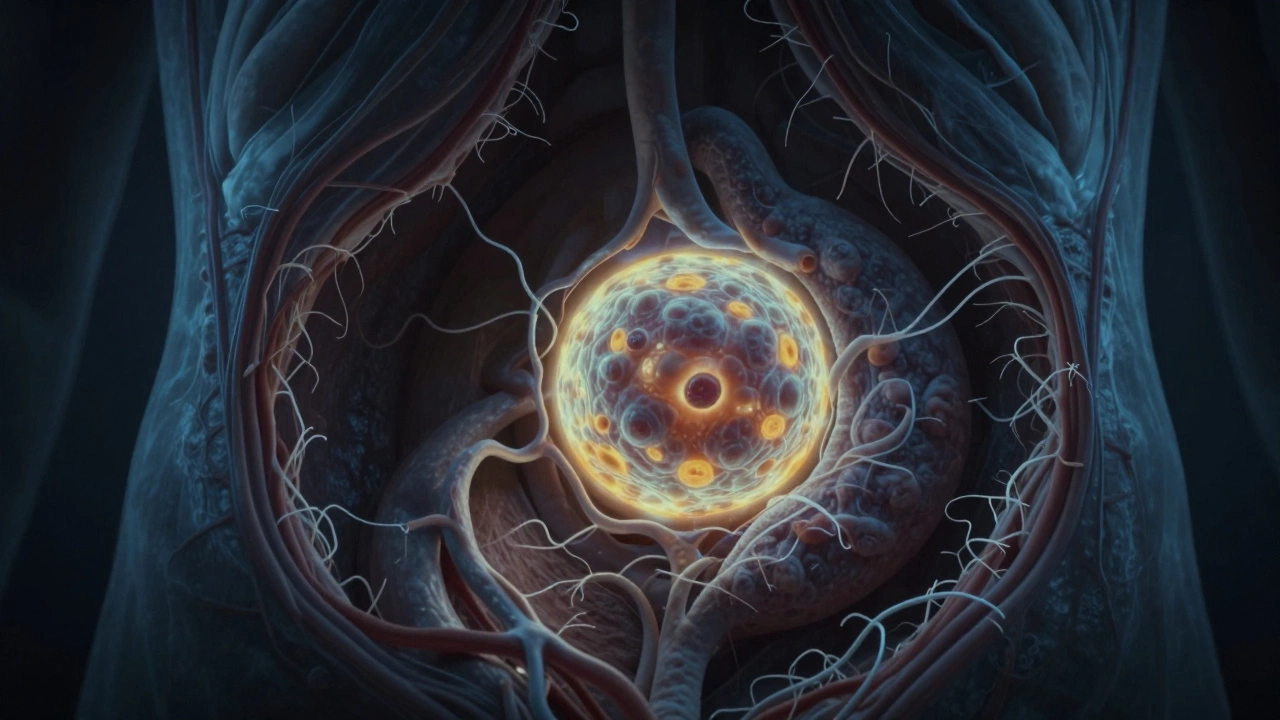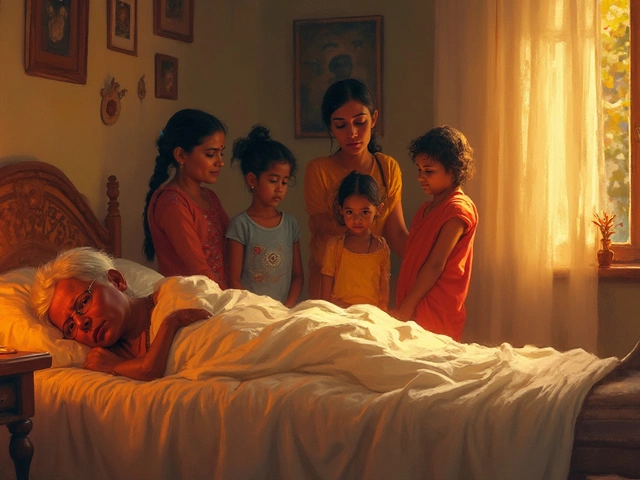Pancreatic cancer is the most feared cancer due to its silent progression, low survival rates, and lack of early detection methods. Learn why it's so deadly and what you can do to reduce your risk.
Read MoreCancer Symptoms: What to Watch For and When to Act
Noticing something odd with your body can be scary, but catching cancer early makes a huge difference. Below is a plain‑talk guide to the symptoms most people see first. It isn’t a diagnosis – it’s a signal to get checked.
Common early symptoms across many cancers
Some signs pop up in many types of cancer. Keep an eye on these:
- Unexplained weight loss – dropping several kilos without trying.
- Persistent fatigue – feeling exhausted even after rest.
- New lumps or thickening – anything you can feel that didn’t exist before.
- Changes in skin – new growths, sores that won’t heal, or darker patches.
- Unusual bleeding or discharge – blood in urine, stool, cough, or from the vagina.
- Ongoing pain – especially if it’s different from a regular ache.
These symptoms can be caused by non‑cancer issues, but they’re worth a doctor’s look.
Symptoms that point to specific organs
While the above are general, many cancers have tell‑tale clues:
- Breast: a new lump, dimpling of skin, nipple changes.
- Lung: persistent cough, breathlessness, chest pain, coughing up blood.
- Colon/Rectum: blood in stool, change in bowel habits, abdominal pain.
- Prostate: trouble urinating, weak stream, blood in urine.
- Skin (melanoma): a mole that changes size, color, or shape.
- Head/neck: sore throat, trouble swallowing, a lump in the neck.
Notice any of these and schedule a check‑up. Early tests are often simple – a blood test, imaging, or a quick biopsy.
When to see a doctor
Don’t wait for the symptom to get worse. If any of the following apply, book an appointment:
- You’ve had a new symptom for more than two weeks.
- Pain or bleeding is getting stronger.
- Weight loss is rapid – more than 5 % of your body weight.
- Family history of cancer and you notice any change.
Doctors will ask about the symptom’s start, how it feels, and any other changes you’ve noticed. Being honest helps them decide the right tests.
What to expect at the appointment
The doctor may do a physical exam, order blood work, or send you for imaging like an X‑ray, ultrasound, or CT scan. If something looks suspicious, a biopsy (taking a small tissue sample) is the next step. These procedures sound intense, but they’re routine and usually quick.
Remember: catching cancer early often means less invasive treatment and a better chance of recovery. Staying aware of your body’s signals is the first step toward that goal.
Take control of your health
Make a habit of checking for new lumps, noting changes in weight, and paying attention to any pain that won’t quit. Write down what you notice and bring it to your doctor. It’s not about being paranoid – it’s about being proactive.
Finally, keep a healthy lifestyle. Balanced diet, regular exercise, and avoiding tobacco lower many cancer risks. Pair good habits with vigilance, and you give yourself the best shot at staying cancer‑free.
Could cancer be hiding in your body for years without you knowing? Here’s what science says about how long you can live with undetected cancer and what signs to watch for.
Read More





